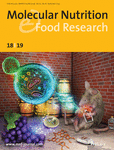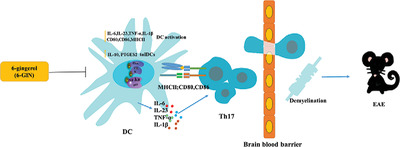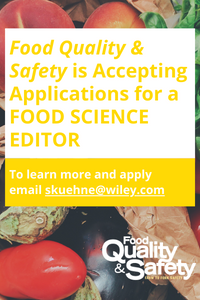Journal list menu
Export Citations
Download PDFs
Front Cover
Front Cover: The Preventative Effects of Procyanidin on Binge Ethanol-Induced Lipid Accumulation and ROS Overproduction via the Promotion of Hepatic Autophagy
- First Published: 19 September 2019
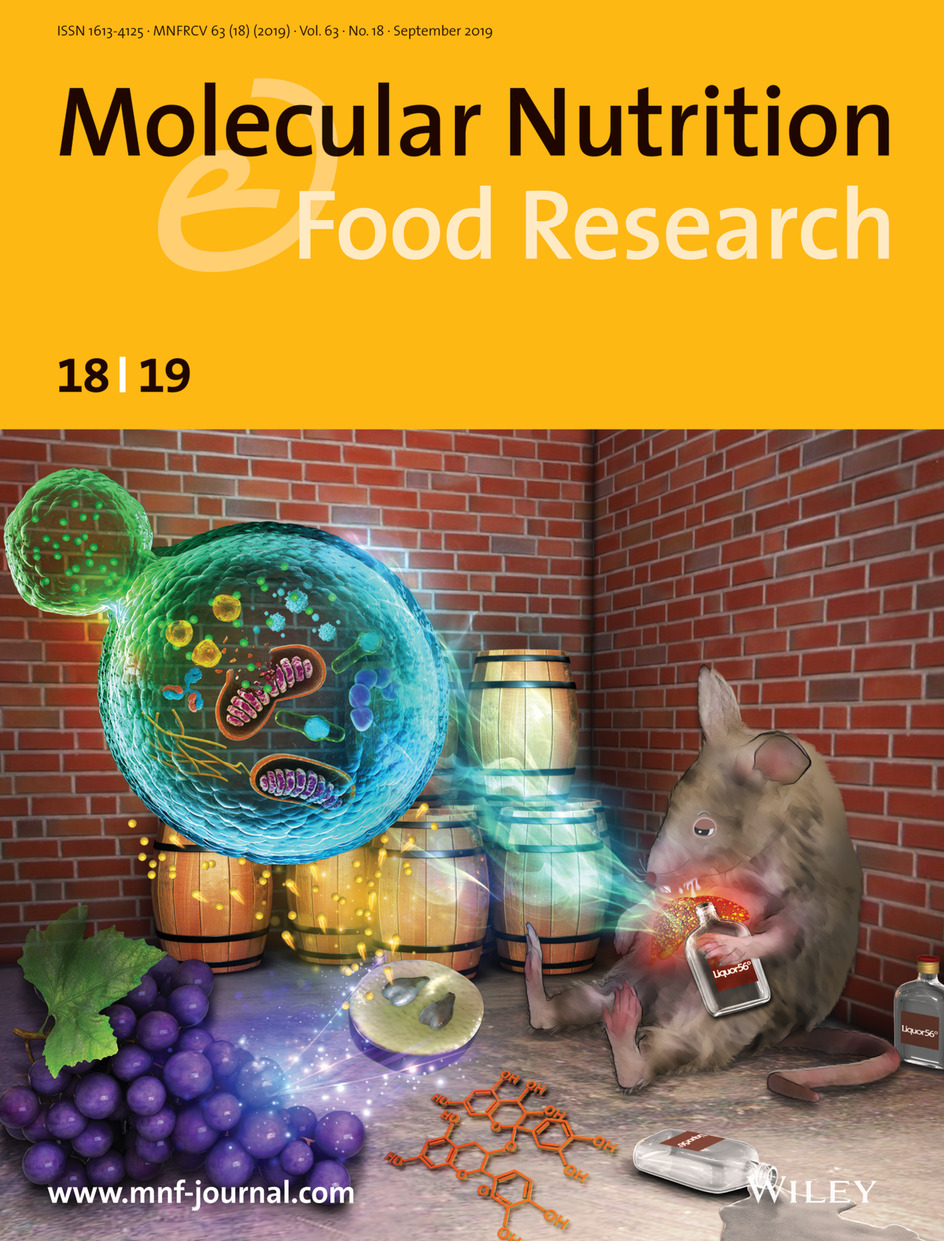
Mol. Nutr. Food Res. 2019, 63, 1801255
Owing to their health promotion function, the procyanidins have long been employed as dietary supplements. In article number 1801255, Kaiping Wang and co-workers find that the dimer procyanidin may alleviate acute alcoholic liver disease via the activation of hepatocyte autophagy, providing novel insight into a strategy to fight against alcoholic liver disease.
Back Cover
Back Cover: Physiological Concentrations of Blueberry-Derived Phenolic Acids Reduce Monocyte Adhesion to Human Endothelial Cells
- First Published: 19 September 2019
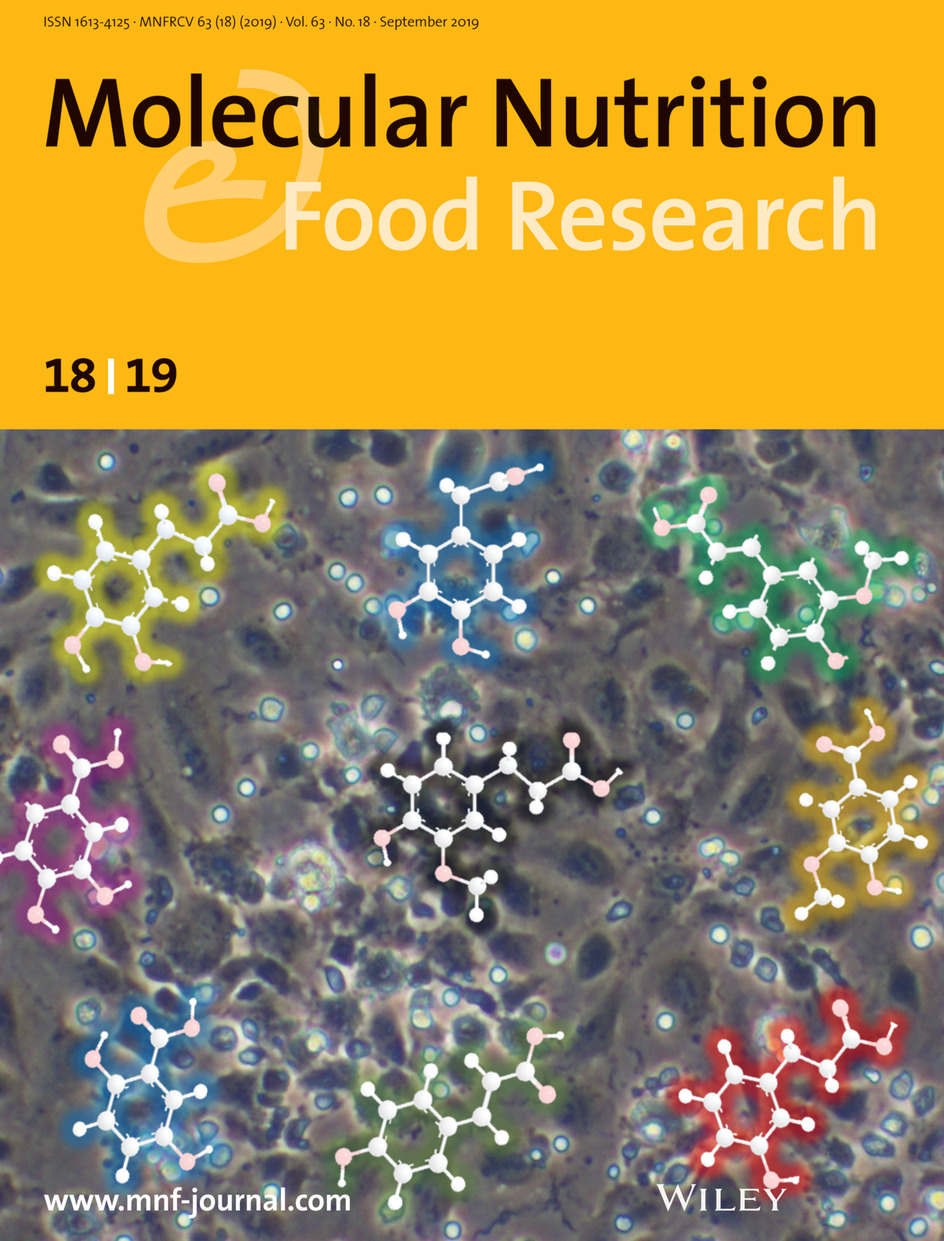
Mol. Nutr. Food Res. 2019, 63, 1900478
In article number 1900478, Margreet C. M. Vissers and co-workers investigate the activity of bioavailable, blueberry-derived phenolic acid metabolites on the adhesion of monocytes to vascular endothelial cells. This work shows that a physiologically relevant mixture of phenolic acid metabolites, based on those found in plasma following blueberry juice intake, can reduce monocyte adhesion to endothelial cells. This suggests a mechanism by which blueberry polyphenol metabolites may benefit vascular health.
Editorial Board
Letter to the Editor
The Hypoglycemic Effect of Green Tea Brewed in Cold Water is more Effective
- First Published: 19 September 2019
Research Articles
The Preventative Effects of Procyanidin on Binge Ethanol-Induced Lipid Accumulation and ROS Overproduction via the Promotion of Hepatic Autophagy
- First Published: 23 July 2019
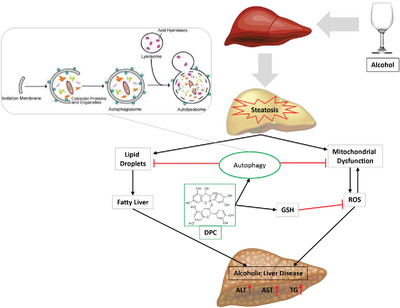
The dimer procyanidin (DPC), which is linked by a C─O─C bond, is not only a protective reagent for alcoholic liver disease but also a potent agonist on hepatic autophagy. DPC may alleviate acute alcoholic liver disease via the promotion of the autophagylysosomal pathway, providing novel insight into the strategy to fight against alcoholic liver disease.
Physiological Concentrations of Blueberry-Derived Phenolic Acids Reduce Monocyte Adhesion to Human Endothelial Cells
- First Published: 19 June 2019
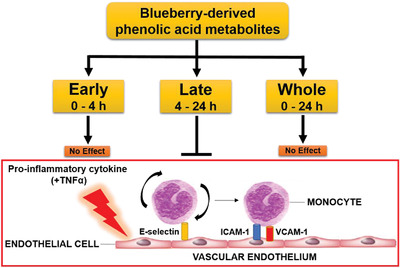
The effect of mixtures of bioavailable blueberry-derived phenolic acid metabolites on monocyte adhesion to vascular endothelial cells is investigated. At concentrations found in plasma, these compounds reduce monocyte adhesion to the vascular endothelium, suggesting a mechanism for maintaining cardiovascular health.
Glycerol-Monolaurate-Mediated Attenuation of Metabolic Syndrome is Associated with the Modulation of Gut Microbiota in High-Fat-Diet-Fed Mice
- First Published: 18 July 2019
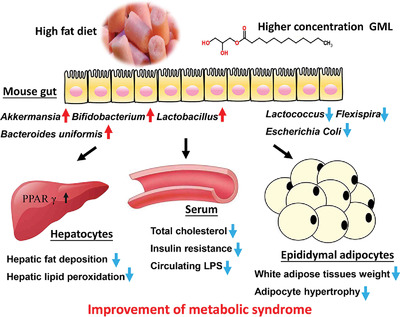
Higher-dose glycerol monolaurate (GML) supplementation improves metabolic syndrome in high-fat-diet fed mice by significantly preventing visceral fat deposition, ameliorating hyperlipidemia, modulating hepatic lipid metabolism, reducing insulin resistance, and lowering circulating lipopolysaccharide load, accompanied by gut microbiota modulation. These metabolic improvements are significantly correlated with specific bacterial genera, suggesting the potential of GML in metabolic modulation by targeting gut microbiota.
Diet-Related Metabolites Associated with Cognitive Decline Revealed by Untargeted Metabolomics in a Prospective Cohort
- First Published: 20 June 2019
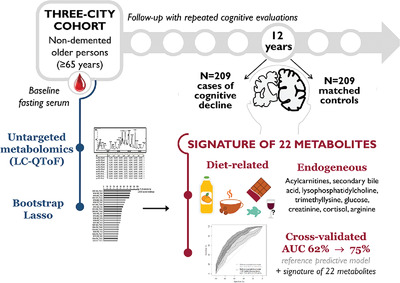
The Three-City cohort of older persons with a 12-year follow-up for cognition is leveraged to identify, in the serum of initially non-demented participants, metabolites associated with subsequent cognitive decline. Untargeted metabolomics reveals a signature of 22 metabolites improving cognitive decline prediction. It includes diet-derived metabolites (e.g., from coffee, citrus juice, cocoa, fish), as well as endogenous metabolites responsive to diet.
Selective Proteolysis of α-Lactalbumin by Endogenous Enzymes of Human Milk at Acidic pH
- First Published: 04 July 2019
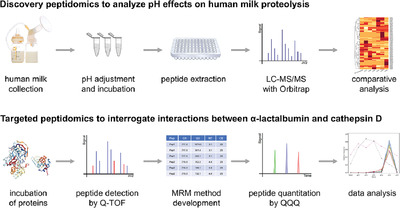
Human milk contains enzymes, yet their activities in response to variations including pH within infants are unclear. Using peptidomics approaches, this work shows that human milk enzyme cathepsin D cleaves α-lactalbumin as the pH shifts from 7 to 3. The study shows that selective proteolysis activated by pH shift is a mechanism for dynamic interactions between human milk and the infant.
Human Milk Oligosaccharides Protect against Necrotizing Enterocolitis by Inhibiting Intestinal Damage via Increasing the Proliferation of Crypt Cells
- First Published: 17 June 2019
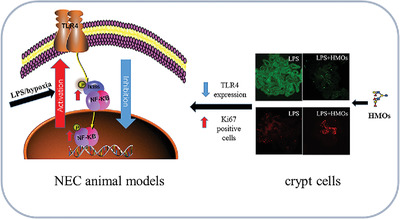
Human milk oligosaccharides (HMOs) efficiently alleviate damage caused by excessive inflammation of intestinal epithelial cells by inhibiting toll-like receptor 4 (TLR4) expression. It is also found that treatment with HMOs increases the proliferative cell ratio in the condition of lipopolysaccharide (LPS) treatment. The new maturation cells express low TLR4 levels during LPS treatment so that their response might be reduced.
Rational Design, Structure–Activity Relationship, and Immunogenicity of Hypoallergenic Pru p 3 Variants
- First Published: 17 June 2019
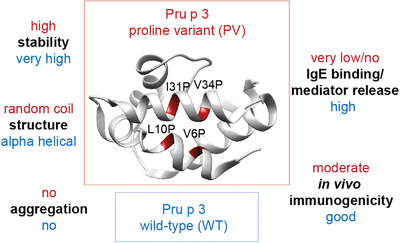
Engineering of the lipid transfer protein Pru p 3 from peach results in the generation of stable protein fold variants. These molecules demonstrate very low allergenic potency opposed to the wild-type allergen. Proline variant presents enhanced integrity and elicits an immune response in a mouse model, thus representing a candidate molecule for allergen immunotherapy of peach allergic patients.
Targeting on Gut Microbial Metabolite Trimethylamine-N-Oxide and Short-Chain Fatty Acid to Prevent Maternal High-Fructose-Diet-Induced Developmental Programming of Hypertension in Adult Male Offspring
- First Published: 11 July 2019
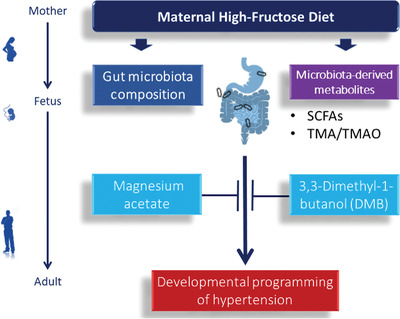
Maternal high-fructose diet (HFD) induces developmental programing of hypertension in adult offspring, which is associated with alterations of gut microbiota compositions and their metabolites: trimethylamine (TMA), trimethylamine-N-oxide (TMAO), and SCFAs. 3,3-Dimethyl-1-butanol (an inhibitor for TMA formation) or the predominant SCFA acetate supplementation can prevent maternal HFD-induced programed hypertension.
Walnut-Derived Peptide PW5 Ameliorates Cognitive Impairments and Alters Gut Microbiota in APP/PS1 Transgenic Mice
- First Published: 25 June 2019
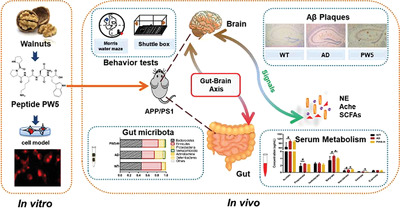
Walnut (Juglans regia L.) is a widely consumed nut as part of a regular diet. By using an intracellular β-amyloid aggregation cell model and APP/PS1 transgenic mice, it is shown for the first time that a walnut-derived peptide PW5 can effectively reduce β-amyloid plaques and alter gut microbiota and serum metabolites compositions, and these are highly associated with cognitive improvements.
Treatment with 6-Gingerol Regulates Dendritic Cell Activity and Ameliorates the Severity of Experimental Autoimmune Encephalomyelitis
- First Published: 17 July 2019
Choline Supplementation Ameliorates Behavioral Deficits and Alzheimer's Disease-Like Pathology in Transgenic APP/PS1 Mice
- First Published: 12 July 2019
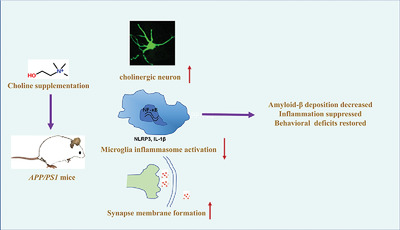
Choline is an essential nutrient. It is reported here that choline supplementation could alleviate cognitive deficits, anxiety, and Alzheimer's disease (AD)-like pathology in an adult AD mouse. These effects might involve restoration of cholinergic neurons, inhibition of inflammasome activation, and restoration of synapse formation. These findings shed light on the potential preventive and therapeutic application of choline for AD.
Food & Function
Dietary Cocoa Prevents Aortic Remodeling and Vascular Oxidative Stress in Diabetic Rats
- First Published: 30 May 2019
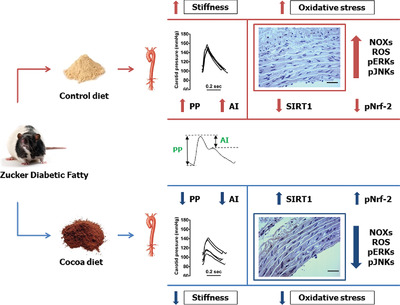
A cocoa rich-diet strongly prevents aortic stiffening and remodelling in diabetic animals and avoids aortic oxidative stress. This effect seems to be mediated via sirtuin-1, NADPH oxidases, and nuclear factor E2-related factor 2 and their antioxidant products. Overall, these findings indicate a novel mechanism to alleviate cardiovascular risk in the diabetic population.




